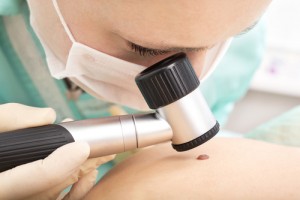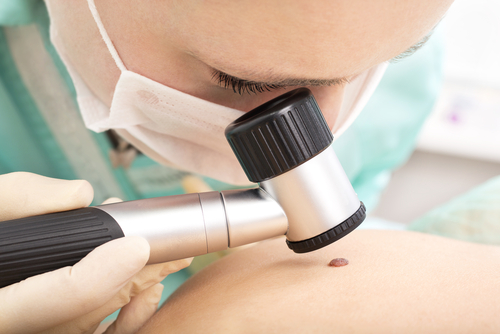 Myriad Genetics, Inc, a leading molecular diagnostic company, has presented results from its pivotal clinical validation study of the Myriad myPath™ Melanoma test at the 2014 American Society of Clinical Oncology (ASCO) annual meeting in Chicago.
Myriad Genetics, Inc, a leading molecular diagnostic company, has presented results from its pivotal clinical validation study of the Myriad myPath™ Melanoma test at the 2014 American Society of Clinical Oncology (ASCO) annual meeting in Chicago.
The Myriad myPath Melanoma test is a novel diagnostic kit designed to accurately distinguish between malignant melanoma and benign skin lesions in all major melanoma subtypes. This diagnostic tool can test 23 melanoma-associated genes, providing crucial information that can help oncologists to deliver a more appropriate and correct diagnosis.
The clinical study analyzed 437 pigmented lesions (211 melanomas and 226 nevi) representative of multiple subtypes of melanoma, and submitted from 4 different medical centers in the US. Clinical endpoint for this study was set as concordance of the myPath Melanoma test to a consensus diagnosis from expert dermatopathologists.
The molecular test proved to efficiently differentiate malignant melanoma from benign skin lesions, demonstrating a sensitivity of 90% and a specificity of 91%, supporting a clinical use for myPath alongside established pathology techniques to diagnose melanoma.
Earlier in 2013, Myriad presented results from a verification study whereby analysis of 464 lesions with the myPath Melanoma test showed a greater than 90% diagnostic accuracy.
“Unfortunately, some melanomas mimic benign skin lesions, making them very difficult to diagnose and an uncertain result is confusing for patients and clinicians. What we need is a new tool to help us make a more definitive diagnosis. In the validation study, Myriad myPath Melanoma was shown to differentiate malignant melanoma from benign skin lesions using traditional dermatopathology as a gold standard. This represents a significant contribution toward making a prompt and accurate diagnosis of potentially fatal melanoma,” Sancy Leachman, M.D., Ph.D, chair of the Department of Dermatology at the Oregon Health & Science University (OHSU) School of Medicine and director of the Melanoma Research Program at the Knight Cancer Institute said in a Myriad press release.
In addition to these clinical results, Myriad also presented an analysis of a prospective clinical utility study that proved to be consistent with findings from a retrospective clinical utility study presented at the United States & Canadian Academy of Pathology’s (USCAP) annual meeting earlier this year showing a 33% change in medical management based upon the Myriad myPath Melanoma test result.
“We believe the Myriad myPath Melanoma test will substantially improve the standard of care for patients with melanoma. The Myriad myPath Melanoma test objectively answers a vital clinical question for healthcare providers: Does my patient have malignant melanoma that requires surgical or medical intervention, or a harmless skin lesion that only needs to be watched? The appropriate therapy may differ drastically depending on the answer to that question,” Loren Clarke, M.D., vice president of Medical Affairs at Myriad Genetic Laboratories also added in the press release.


